Republic
A republic is a form of government in which the country is considered a "public matter" and not the private concern or property of the rulers. In a republic, the country is considered a "res publica", which means "public affair" or "public thing". This form of government is based on the idea that power is vested in the people, who exercise their power through elected representatives.
Key Features of a Republic:
- Representative Government: In a republic, the people elect representatives to make decisions on their behalf.
- Separation of Powers: The government's powers are divided among different branches, such as the executive, legislative, and judicial branches, to prevent any one branch from becoming too powerful.
- Rule of Law: The government is bound by a set of laws that apply to everyone, including the rulers.
- Protection of Individual Rights: A republic aims to protect the rights and freedoms of its citizens, often through a written constitution.
Examples of Republics:
Some examples of republics include the United States, France, Germany, India, and Brazil. These countries have elected representatives, a separation of powers, and a commitment to upholding the rule of law and individual rights.
Study Questions:
- What is the meaning of "res publica" in the context of a republic?
- Explain the concept of separation of powers in a republic.
- How does a republic protect the rights of its citizens?
- Provide examples of republics around the world.
[Republic] Related Worksheets and Study Guides:
.◂Social Studies Worksheets and Study Guides Fifth Grade. The Revolution
Study Guide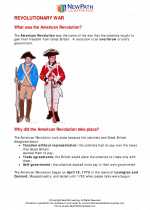 The Revolution
The Revolution  Worksheet/Answer key
Worksheet/Answer key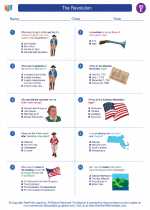 The Revolution
The Revolution  Worksheet/Answer key
Worksheet/Answer key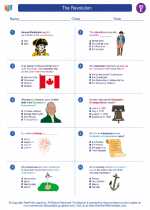 The Revolution
The Revolution  Worksheet/Answer key
Worksheet/Answer key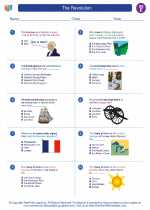 The Revolution
The Revolution  Worksheet/Answer key
Worksheet/Answer key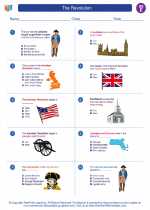 The Revolution
The Revolution  Worksheet/Answer key
Worksheet/Answer key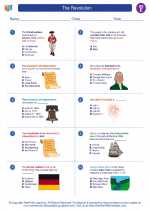 The Revolution
The Revolution  Worksheet/Answer key
Worksheet/Answer key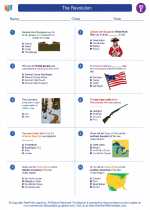 The Revolution
The Revolution  Worksheet/Answer key
Worksheet/Answer key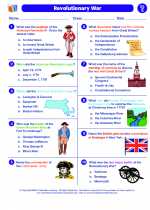 Revolutionary War
Revolutionary War 

 Worksheet/Answer key
Worksheet/Answer key
 Worksheet/Answer key
Worksheet/Answer key
 Worksheet/Answer key
Worksheet/Answer key
 Worksheet/Answer key
Worksheet/Answer key
 Worksheet/Answer key
Worksheet/Answer key
 Worksheet/Answer key
Worksheet/Answer key
 Worksheet/Answer key
Worksheet/Answer key

The resources above cover the following skills:
National Curriculum Standards for Social Studies (NCSS)
TIME, CONTINUITY, AND CHANGE
SOCIAL STUDIES PROGRAMS SHOULD INCLUDE EXPERIENCES THAT PROVIDE FOR THE STUDY OF THE PAST AND ITS LEGACY.
KNOWLEDGE - Learners will understand:
Concepts such as: chronology, causality, change, conflict, complexity, multiple perspectives, primary and secondary sources, and cause and effect.
CIVIC IDEALS AND PRACTICES
SOCIAL STUDIES PROGRAMS SHOULD INCLUDE EXPERIENCES THAT PROVIDE FOR THE STUDY OF THE IDEALS, PRINCIPLES, AND PRACTICES OF CITIZENSHIP IN A DEMOCRATIC REPUBLIC.
KNOWLEDGE - Learners will understand:
Key documents and excerpts from key sources that define and support democratic ideals and practices (e.g., the U.S. Declaration of Independence, the U.S. Constitution, the Gettysburg Address, the Letter from Birmingham Jail; and international documents such as the Declaration of the Rights of Man, and the Universal Declaration of the Rights of Children).
National Standards for Civics and Government (NSCG)
What are the foundations of the American political system? What is American political culture?
American identity. Students should be able to explain the importance of shared political values and principles to American society. To achieve this standard, students should be able to
Identify basic values and principles Americans share as set forth in such documents as the Declaration of Independence, the United States Constitution, the Gettysburg Address
The character of American political conflict. Students should be able to describe the character of American political conflict and explain factors that usually prevent violence or that lower its intensity. To achieve this standard, students should be able to
Describe political conflict in the United States both historically and at present, such as conflict about
Engaging in wars
What are the foundations of the American political system? What values and principles are basic to American constitutional democracy?
Fundamental values and principles. Students should be able to explain the meaning and importance of the fundamental values and principles of American constitutional democracy. To achieve this standard, students should be able to
Identify fundamental values and principles as expressed in
Basic documents, e.g., Declaration of Independence and United States Constitution
What is the relationship of the United States to other nations and to world affairs? How has the United States influenced other nations and how have other nations influenced American politics and society?
Impact of the American concept of democracy and individual rights on the world. Students should be able to describe the influence of American political ideas on other nations. To achieve this standard, students should be able to
Describe the impact on other nations of the American Revolution and of the values and principles expressed in the Declaration of Independence and the United States Constitution, including the Bill of Rights
What are the roles of the citizen in American democracy? What are the rights of citizens?
Personal rights. Students should be able to evaluate, take, and defend positions on issues involving personal rights. To achieve this standard, students should be able to
Identify the major documentary sources of personal rights, e.g., Declaration of Independence, United States Constitution, including the Bill of Rights, state constitutions
Political rights. Students should be able to evaluate, take, and defend positions on issues involving political rights. To achieve this standard, students should be able to
Identify major statements of political rights in documents such as the Declaration of Independence, United States Constitution, including the Bill of Rights, state constitutions, and civil rights legislation
National Center for History in Schools (NCHS)
Historical Thinking Standards
Historical Comprehension
Reconstruct the literal meaning of a historical passage.
Historical Analysis and Interpretation
Analyze cause-and-effect relationships and multiple causation, including the importance of the individual, the influence of ideas.
United States History Content Standards
Era 3: Revolution and the New Nation (1754-1820s)
The causes of the American Revolution, the ideas and interests involved in forging the revolutionary movement, and the reasons for the American victory.
The student understands the causes of the American Revolution.
The student understands the principles articulated in the Declaration of Independence.
The student understands the factors affecting the course of the war and contributing to the American victory.
The impact of the American Revolution on politics, economy, and society.
The student understands revolutionary government-making at national and state levels.
The student understands the economic issues arising out of the Revolution.
Era 4: Expansion and Reform (1801-1861)
United States territorial expansion between 1801 and 1861, and how it affected relations with external powers and Native Americans.
The student understands the international background and consequences of the Louisiana Purchase, the War of 1812, and the Monroe Doctrine.